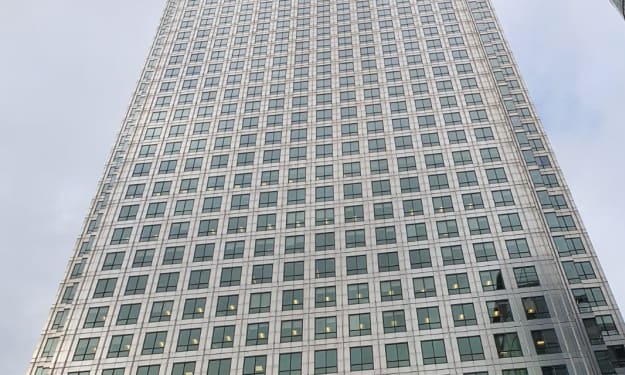Interview Guidance Pack
Secrets to landing your next top job!

Interview Guidance Pack
Before the Interview
• Research
Look committed and find out as much as possible about the company.
Visit their web site for more information on the company.
• Job Description
Read the job description carefully.
Make sure you meet all the criteria detailed in the job description.
Be confident that you are technically qualified to do the job.
Have examples from your previous roles to demonstrate your ability to do this job.
Index:
Page 1. Overview
2. Interview Do’s
3. Interview Don’ts
4. Body Language Do’s and Body Language Don’ts
5. Your questions
6. Their questions and sample answers
7. Their questions and sample answers
8. Their questions and sample answers
9. Other interviewers’ questions to consider.
Interview Do’s
• Presentation
Look your smartest and show your most professional side during the interview. A company is more likely to hire someone who is well presented and who will therefore best represent their company.
• Punctuality
Arrive on time.
Obtain clear directions for the location of the interview and plan your journey, allowing plenty of time to arrive. If you are unavoidably delayed, notify the company immediately giving the reason and your estimated time of arrival.
• During the interview
Introduce your self courteously.
Express yourself clearly.
Show tact, manners, courtesy, and maturity at every opportunity.
Be confident and maintain poise. The ability to handle your nerves during the interview will come across as confidence in your ability to handle the job.
Be prepared to show how your experience would benefit the company.
Ask questions concerning the company or products and the position for which you are being interviewed for. An interviewer will be impressed by an eager and inquisitive mind.
You will be able to demonstrate that you can contribute to the company or industry if you show an interest in its products and/or services.
Take time to think and construct your answers to questions to avoid rushing into a vague and senseless reply.
Demonstrate that you are sufficiently motivated to get the job done well and that you will fit in with the company’s organistional structure and the team in which you will work.
Show willingness to start at the bottom and work your way up.
Anticipate questions you’re likely to be asked and have answers prepared in advance.
Uncertainty and disorganisation show the interviewer that you are unprepared and unclear what your goals are.
Be assertive without being aggressive
Thank the interviewer.
Interview Don’ts
• Punctuality
Be late for the interview. Tardiness is a sign of irresponsibility or disorganistion and the employer could take it as what to expect in the future.
• During the interview
Arrive unprepared for the interview.
Say unfavorable things about previous employers.
Make excuses for failings.
Give vague responses to questions.
Show lack of career planning – no goals or purpose could convey the impression you’re merely shopping around or only want the job for a short while.
Show too much concern about rapid advancement.
Overemphasise money. Your interviewing goal is to sell yourself to the interviewer and to get an offer of employment. Salary discussion is secondary.
Refuse to travel and/or relocate. Always be open for discussion concerning travel and relocation. The employer may be talking about future plans, not present.
Show any reservations you may have about the role/company. You can always turn down the second interviews and job offers after you have had time to appraise your concerns in the cold light of day.
Demonstrate low moral standards.
Express strong prejudices or any personal intolerance.
Leave you mobile phone on during the interview.
Body Language Do’s
• Ensure a firm handshake. A firm handshake shows confidence in yourself and your abilities.
Walk slowly, deliberately, and tall upon entering the room.
Maintain a high level of eye contact throughout.
Remember not to be seen to be staring. Look away occasionally, looking confidently and calmly to the right or left, never look down.
Listen.
Be alert and enthusiastic – it’s often a deciding factor in employing candidates. An indifferent attitude is instantly recognised as “I don’t care if I get this job”
Smile, nod, and give non-verbal feedback to the interviewer.
Do not hurry any movement.
Relax with every breath.
Body Language Don’ts
• Have a poor/limp handshake.
Display laziness.
Be aggressive or act in a superior, conceited or overbearing way.
Have a poor voice, diction or grammar.
Look distracted, look down or avoid eye contact.
Talk too much. Answer questions as asked, without being abrupt; expound only to the point that the interviewer has a clear understanding of what you mean.
Lose concentration or attention.
Your Questions
• The interview is a two-way process. You need to interview the company to find out if the company and the position are right for you. Prepare the questions that you want answered and ask them. If you ask open questions, e.g.: those beginning with “what”, “how”, “where”, “who” or “will”, it will encourage your interviewer to talk and provide you with additional information.
• Consider some of the following:
What will my responsibilities be?
How has the position become vacant?
How does the role fit into the structure of the department?
How does the department fit into the organization as a whole?
Who will I report to and are there persons reporting to me?
Where does my line manger fit into the structure?
What encouragement is given to undertake further training?
Who are your customers?
Where is the company going? Expansion plans?
Will the position entail traveling?
How soon will you decide on the appointment?
What is the next step?
Their Questions and sample answers
Tip: when you’re asked open ended questions, always try and make your answers positive.
Q: Tell me about yourself?
(What the interviewer is really saying “I want to hear you talk”)
A: This is a ‘loosener’ but is a common question so your response can be standardised. Write a script; rehearse it so it sounds impromptu. Spend a maximum of four minutes to describe your qualifications, career history and your range of skills. Emphasise those skills that are relevant to the job on offer.
Q: What have been your achievements to date?
(The interviewer is saying, “Are you an achiever”)
A: Again this is a common question so be prepared. Select an achievement that is experience related and fairly recent. Identify skills you used in the achievement and quantify the benefit.
Q: Are you happy with your career to date?
(The interviewer is really asking about your self-esteem and self-confidence, your career aspirations and whether you are a happy, positive person)
A: The answer must me ‘YES’ but if you have hit a career plateau or you feel you are moving too slowly, then you must qualify the answer.
Q: Tell me about the most difficult situation you have had to face and how you tackled it?
(The interviewer is really trying to find out your definition of ‘Difficult’ and whether you can show a logical approach to problem solving using your initiative)
A: This can be a trap! To avoid it, select a difficult work situation that was not caused by you and which can be quickly explained in a few sentences. Explain how you defined the problem, what the options were, why you selected the one you did and what the outcome was. Always end on a positive note.
Q: What do you like about your present job?
(The interviewer is really trying to find out whether you will enjoy the things the job has to offer)
A: This is a straightforward question. All you have to do is to make sure that your ‘likes’ correspond to the skills etc. required for the job on offer. Be positive, describe your job as interesting and diverse but do not overdo it, after all, you are leaving.
Q: What do you dislike about your current job/role?
(What the interviewer is trying to find out is whether the job on offer has responsibilities you will dislike or which will make you unsuitable)
A: Be careful with this one! Do not be too specific as you may draw attention to weaknesses, which will leave you open to further problems. One approach is to choose a characteristic of your present company such as its size, its slow decision making etc. Give your answer with the air of someone who takes problems and frustrations in your stride as part of the job.
Q: What are your strengths?
(The interviewer wants a straightforward answer as to what you are good at and how it is going to add value)
A: This is one question that you are going to get so there is no excuse for being unprepared. Concentrate on discussing your main strengths. List three or four explanations of how they could benefit the employer. Strengths to consider include technical proficiency; ability to learn quickly; determination to succeed; positive attitude; your ability to relate to people and achieve a common goal. You may be asked to give examples of the above so be prepared.
Q: What are your greatest weaknesses?
(The interviewer is asking about your self-perception and self-awareness)
A: This is another standard question for which you can be well prepared. Don’t say you have none – this will ensure further problems. You have two options – use a professional weakness such as a lack of experience (not ability) on your part in one area that is not vital for the job. The second option is to describe a personal or professional weakness that could also be considered as a strength and the steps that you have taken to combat it. An example would be, “I know my team think I’m too demanding at times – I tend to drive them pretty hard but I’m getting much better at using the carrot and not the stick”
Do not select a personal weakness such as “I’m not a morning person – I’m much better as the day goes on”.
Q: What kind of decision do you find most difficult?
(What the interviewer is really saying, ‘I need someone who is strong and decisive but who has a human side)
A: Your answer must not display weakness. Try to focus on decisions that have to be made without sufficient information. This will show your positive side. For example, “I like to make decisions based on sufficient information and having alternatives. When you have to make quick decisions you have to rely on ‘gut feeling’ and experience”
Q: Why do you want to leave your current employer?
(What the interviewer is trying to understand and evaluate are your motives for moving)
A: This should be straightforward. State how you are looking for more challengers, responsibility, experience and a change of environment. NEVER be negative in your reasons for leaving and it will rarely be appropriate to state salary as the primary motivator.
Other Interviewers’ questions to consider
Remember the interviewer will ask open questions, e.g. those beginning with “what”, “how”, “where”, “who” or will. To encourage you to talk and provide them with additional information about yourself.
How does your job fit into your department and company?
(Gives an idea of level of responsibility)
What do you enjoy about the industry?
How do you respond to working under pressure, meaning, can you? Give examples.
What kinds of people do you like working with?
How have you coped when you work has been criticized? Give examples including the outcome.
What is the worst situation you have faced outside work? Give examples including the outcome.
How have you coped when you have felt anger at work? Give examples and show how you were still able to perform a good job.
What kind of people do you find difficult to work with? Take care! You won’t know everything about the staff at the company at which you’re being interviewed.
How have you coped when you have had to face a conflict of interest at work? Testing interpersonal skills, team and leadership opportunities.
Tell me about the last time you disagreed with your boss?
Where have you been unable to get on with others?
What are your preferred working, conditions, working alone or in a group and why?
How do you think you are going to fit in here especially as this organization is very different to your current employer? You may not be able to answer until you have established what he/she perceives as the differences.
What are you look for in a company?
How do you measure your own performance?
What kind of pressures have you encountered at work?
Are you a self-starter? Give examples to demonstrate this.
What is the biggest problem you have faced recently and how have you resolved it.
How do you feel about working long hours and/or weekends?
What can you bring to this organization?
What area of your skills do you want to improve? Try to relate this to the role on offer.
Which part of the role is least attractive to you?
Where would you see yourself in five years?
What would your referees say about you?
Why should I give this position to you instead of the other people on the shortlist? Give examples of your strengths.
What five adjectives would you use that best describe you? Give examples of in and out of the work place.
About the Creator
Joshua Jogo
JOSHUA JOGO
British Politician and Educator.
He holds an MSc in Computing and IT from Northumbria University, London. He also, holds a Prince 2 Project Management certification and is the CEO of Heathrow Property and Digital Services Ltd UK






Comments
There are no comments for this story
Be the first to respond and start the conversation.